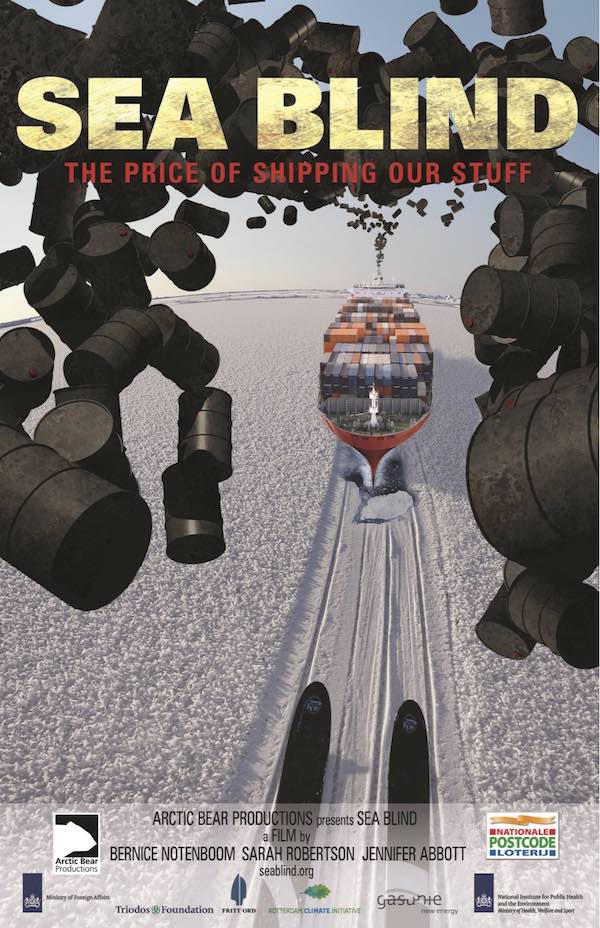Sea Blind: Arctic shipping debate on celluloid

A documentary movie Sea Blind – The Price of Shipping our Stuff, will premier tomorrow during this week’s UN Climate Change Conference, COP23, in Bonn.
The movie, co-directed by Canadian independent wildlife and science documentary producer Sarah Robertson and climate journalist/polar explorer Bernice Notenboom, addresses climate issues brought about by the opening up of Arctic shipping routes in recent years and looks at potential alternatives to heavy fuel oil use in the Arctic region.
“We were interested that so few people understood the scale and influence of shipping in global trade and wondered what happens if the scale of shipping gets re-routed through the Arctic because of more accessible Arctic shipping routes,” says Robertson.
After doing more research, Robertson and Notenboom started to question the consequences of pollution and climate effects coming from shipping.
“The main purpose of making the documentary was to explore all these questions and inform a general public about shipping and its effects on the consumer and general citizenship,” Robertson says.
The film crew visited nine countries including Canada, the US, Greenland, Denmark, the Netherlands, Germany, Russia, Norway and UK to shoot the documentary.
The film points out the climate effects of marine black carbon on melting snow and ice and explores the hidden costs of shipping.

“The shipping industry is one of the world’s most polluting, yet unregulated industries. Vessels sailing throughout our oceans often burn the dirtiest of all fuels – heavy fuel oil, but it is in the Arctic that the use of HFO is particularly dangerous,” Robertson claims.
There is a growing clamour now to ban HFO fuel in the Arctic, something that will be debated this week in Bonn.
“While in the industry this issue may have familiarity, it has little publicity in the public sphere. Oil spills has some traction in the minds of the public, however, the black carbon aspects are not known at all. It is very compelling for most people to understand that a significant contributor to Arctic warming can be stopped very quickly if only we stopped burning dirty, cheap fuel – especially, when there are alternatives,” she maintains.
Robertson reckons that banning the use of HFO fuel in the Arctic would be a good step, also designating no-go-zones for ships and slow steaming in wildlife corridors to help prevent the increasing shipping activities from destroying the ecosystem in the Arctic, while the use of new satellite remote sensing monitors that detects C02 emissions, sulfur and black carbon aerosols in the atmosphere may be able to pin point entity emitters.
“We are trying to engage a broad discussion in our movie about this issues and to ultimately bring in the public, the consumer as well as the stakeholders into the discussion. We believe that consumer pressure and socially conscious corporate brands can help speed the transitions to cleaner fuel,” Robertson says, adding that there are still a number of challenges to achieve the goal including lack of bunkering facilities of low sulfur fuel in the Arctic and compliance issues in the Russian Arctic.
Following the movie screening at the COP23 event tomorrow, the Clean Arctic Alliance will introduce the Arctic Commitment, an initiative calling on businesses and organisations to step forward and call for a phase-out of heavy fuel oil from Arctic shipping, before holding a panel discussion that will include Sea Blind director Bernice Notenboom.
A trailer for the documentary can be viewed below.
